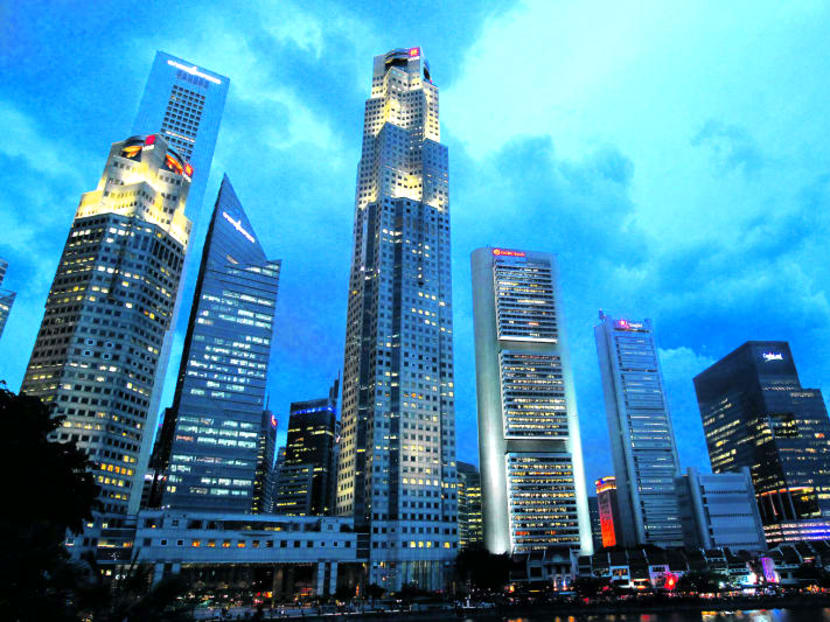New rules to check money laundering, terror financing
SINGAPORE — The Republic has toughened its stance against money laundering and the financing of terrorism with new measures to detect illicit funds and greater scrutiny of customers who may have ties to shadowy organisations.
SINGAPORE — The Republic has toughened its stance against money laundering and the financing of terrorism with new measures to detect illicit funds and greater scrutiny of customers who may have ties to shadowy organisations.
The new rules, announced yesterday by the Monetary Authority of Singapore (MAS), require banks and financial institutions to screen customers and connected parties with more comprehensive monitoring and due diligence processes.
Financial institutions now need to take steps to identify and verify the beneficial owner of a transaction, referring to those who ultimately control the process regardless of whose name it is booked or registered in. These may be family members, clients and close associates who are directly linked to the entities that are undertaking financial transactions.
In addition, the definition of a group of individuals called Politically Exposed Persons (PEP) has been widened. Previously, this group, whose financial dealings are subject to closer scrutiny than most, comprised heads of state, ministers and senior civil servants, military officials, among others. From now on, it will be expanded to include “international organisation politically exposed persons”, or someone who carries out prominent public functions in an international organisation.
Over and above normal customer due diligence measures, financial institutions have to check the source of wealth and funds of the PEP, and obtain approval from senior management to establish or continue business relations with the customer.
For those who are not already customers of the bank, financial institutions will also have to furnish information that include the name, unique identity number, address or date of birth of those wanting to make cross-border wire transfers exceeding S$1,500. The impact of this measure on the general public is expected to be minimal, the MAS told TODAY, as most financial institutions already carry out such checks.
The measures announced yesterday bring Singapore in line with recommendations made by the Financial Action Task Force (FATF), an inter-governmental body established in 1989 that is now the global standard-setter for measures to combat money laundering, terrorist financing and other threats to the integrity of the international financial system.
The new measures, said Mr Ong Chong Tee, MAS’ Deputy Managing Director, show that Singapore is committed to the global effort to combat transnational crime.
Increased vigilance has become necessary as the use of advanced technology and communication systems has resulted in rapid movement of funds across the world.
The estimated amount of money laundered globally in one year, according to the United Nations, is anywhere between US$800 billion (S$1.07 trillion) and US$2 trillion, or between 2 and 5 per cent of global GDP.
Singaporean banks contacted yesterday said they were well prepared for the new measures.
Mr Lam Chee Kin, DBS’ Group head of compliance, said: “Preventing and detecting financial crime is one of the key pillars supporting the reputation and integrity of the financial industry. We have implementation plans for these newly revised notices and guidelines.”
Added Ms Loretta Yuen, head of legal & regulatory compliance at OCBC Bank: “Over the years, the costs that banks worldwide have to incur to comply with the more and increasingly complex anti-money laundering/combating the financing of terrorism (AML/CFT) regulations have risen. But having in place a rigorous AML/CFT regime is critical for combating the increasingly sophisticated methods used by money launderers and terrorists to conceal the source and use of funds.”
“Financial institutions need to be constantly a step ahead in detecting irregular activities and devising counter-measures given the growing complexity of such activities. MAS’ proposed changes are not new to us as we already have in place a number of these risk assessment practices.
“We believe that they will promote greater transparency across the financial services industry and add to Singapore’s standing as an international financial centre,” she added.







